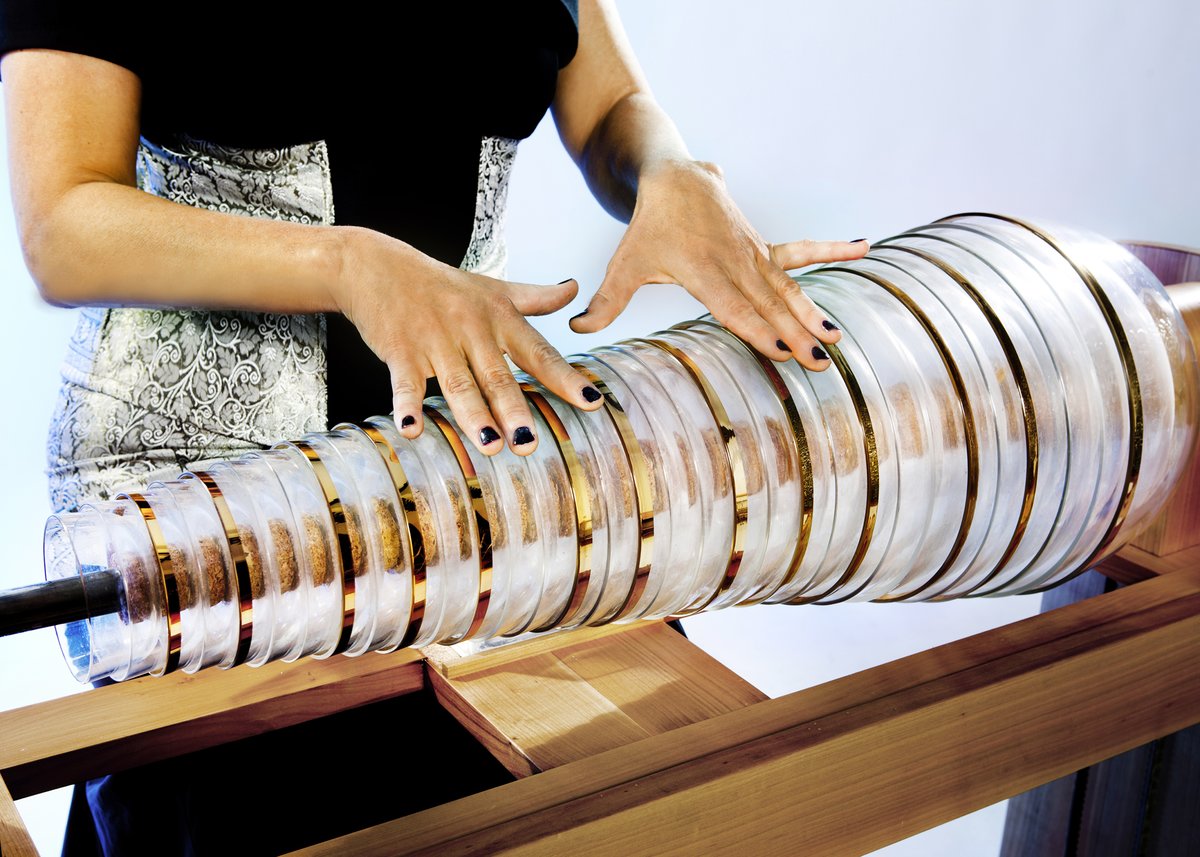thu12oct19:00SOLO FOR GLASS HARMONICA / MORAVIAN AUTUMNA. REICHA
CIMAROSA
HASSE19:00 Besední dům

Time
(Thursday) 19:00
20% for 2 different concerts / 30% for 3 / 40% for 4 / 50% for 5 and more CONCERTS
Event Details
ANTOINE REICHA Gelegenheitskantate, for male voices and orchestra, premiere DOMENICO CIMAROSA De terra amica, aria for soprano, glass harmonica and orchestra ANTOINE REICHA Abschied der Johanna d’Arc von ihrer Heimath, melodrama for glass
Event Details
ANTOINE REICHA
Gelegenheitskantate, for male voices and orchestra, premiere
DOMENICO CIMAROSA
De terra amica, aria for soprano, glass harmonica and orchestra
ANTOINE REICHA
Abschied der Johanna d’Arc von ihrer Heimath, melodrama for glass harmonica, narrator and orchestra, premiere
JOHANN ADOLPH HASSE
L’Armonica, cantata for soprano, glass harmonica and orchestra
Joanna Moskowicz soprano
Christa Schönfeldinger glass harmonica
Barbara Maria Willi recitation, cembalo
Pavel Valenta tenor
Jan Faltýnek bass
Pavel Valenta tenore, Jan Faltýnek bass
Brno Rejcha Collegium 2023
Filharmonie Brno, conductor Jonathan Cohen
Download concert programme (in Czech) here.
Downloas orchestra line-up here.
The glass harmonica, which in three of the four works on tonight’s programme will hold a dialogue with the human voice, was invented in London by Benjamin Franklin and called by him an armonica.
It consists of a series of glass bowls of gradually increasing diameter attached to a shaft controlled by a handle. Franklin constructed the first in 1761, that is, nine years before the birth of Antoine Reicha,
whose two works will be heard for the first time since 1806 and 1808 respectively.
In recent decades, the musical works by Antoine Reicha (1770–1836) have enjoyed renewed interest – it was his theoretical treatises that brought him lasting fame. This is in part due to the fact
that many of the manuscripts that were not published during his lifetime were held by the family until 1927 (they were deposited in the French National Library in 1964) and that includes the works on
today‘s progamme.
A study of the text of the occasional cantata (Gelegenheitscantate) and its comparison with historic events suggests that this is a funeral cantata to honour the French general and Freemason
Pierre Macon. The text praises the humane qualities of the deceased and the brotherhood which joins Freemasons across nations.
Domenico Cimarosa (1749–1801) composed the aria De terra amica con angelico et altri istromenti obbligati on 12 July 1780. The term angelico refers to the angelic organ, a musical instrument consisting of glasses arranged from the smallest to the largest and tuned using water.
Abschied der Johanna d’Arc von ihrer Heimat is Reicha’s attempt at a melodrama. It is based on the prologue to Friedrich von Schiller’s tragedy Die Jungfrau von Orléans (1801). When the narrator announces that the “trumpets play” (die Trompeten klingen), there follows a march for the entire orchestra on a theme introduced in the first part, and featuring a final solo for the harmonica. Marianne Kirchgässner, to whom the work was dedicated, played it on 3 February 1807 in Leipzig and then on 24 April 1808 in Prague.
The cantata Ah, perchè col canto mio, known as L’Armonica, was commissioned from Johann Adolf Hasse (1699–1783) for the wedding of Duke Ferdinand of Bourbon-Parma and Archduchess Maria Amalia. The text combines pastoral and mythological elements, common in cantata libretti, with references to the princely marriage and, unusually, to the performers themselves and the harmonica.
François-Pierre Goy
Location
Besední dům
Komenského náměstí 534/8, Brno
